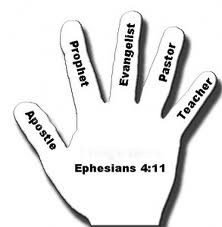I don’t know who this person is, and I’ve never heard of him before, but the reasons he gives for denying his faith are sad and pathetic. If this person really knew his Bible from cover to cover—the whole counsel of YHVH Elohim’s word, he wouldn’t be making these statements. Frankly, he’s revealing his ignorance of the Scriptures.
This brings me to my next point. Just because a person is famous and is on a church stage doesn’t mean a thing. First, they may not even know their Bible. Second, they might not even be saved (converted spiritually from the kingdom of darkness to the kingdom of light). Third, they might simply be a very good actor. Fourth, they might actually be a tare, or worse, a plant of the devil. I have no idea about this fellow. I’m just making general statements based on my deep knowledge of Scripture, on human nature, on the current harlot church system, and my having been in ministry for 30 years 18 of which I head pastored my own congregation.
So what’s the bottom line? We must know those who labor among us (1 Thess 5:12). We must make sure that those that are up front in our churches are solid and mature spiritually—that they know the word of Elohim and that they have the fruits of a Yeshua and Spirit-led and submitted life. Just because they sing well, play a musical instrument well, have the gift of gab and can preach up a storm, or because they look good, are famous, have written a book or two, have done this or that doesn’t in and of itself qualify them for anything ministrywise in Elohim’s spiritual economy.
Right now, YHVH Elohim is judging the sick American and Western churches and the Babylonian system that largely empowers and validates them. YHVH Elohim is taking the lid off the spiritual garbage can called the harlot church system and exposing the pedophiles, sexual perverts, charlatans, phonies, false coverts, money grubbers, hypocrites, tares, actors, gospel peddlers, and demons posing as angels of light. Make no mistake: this is only the beginning. The faith of many will be shaken because of the failures of humans and religious institutions. Why? Because their faith is in men, NOT in YHVH Elohim and his Word (which most of them don’t know very well, if at all.)
So what can you do? Be strong and keep your eyes on Yeshua the Messiah, while standing on the solid and immovable rock of his word. Amein. — Natan
From https://www.christiantoday.com/article/hillsong-worship-leader-marty-sampson-losing-faith/133017.htm
Hillsong worship leader Marty Sampson announces he’s ‘losing’ his faith
Staff writer Mon 12 Aug 2019 15:44 BST

Hillsong worship leader has reportedly walked away from the Christian faith after posting a – since removed – Instagram update in which he said he was “not in anymore”.
The post was removed but not before being captured by Patheos blogger Captain Cassidy and revealed Sampson’s apparent struggles with science and “contradictions in the Bible.
“Time for some real talk… I’m genuinely losing my faith.. and it doesn’t bother me… like, what bothers me now is nothing… I am so happy now, so at peace with the world.. it’s crazy / this is a soapbox moment so here I go xx how many preachers fall? Many. No one talks about it.
“How many miracles happen. Not many. No one talks about it. Why is the Bible full of contradictions? No one talks about it. How can God be love yet send 4 billion people to a place, all coz they don’t believe? No one talks about it.
“Christians can be the most judgemental people on the planet – they can also be some of the most beautiful and loving people… but it’s not for me. I am not in any more.”
The post continues with Sampson saying that he wants to know only the truth and that Christianity had become “like another religion at this point”.
“I want genuine truth. Not the ‘I just believe it’ kind of truth. Science keeps piercing the truth of every religion,” he writes.
“Lots of things help people change their lives, not just one version of God. Got so much more to say, but for me, I keeping it real.
“Unfollow if you want, I’ve never been about living my life for others. All I know is what’s true to me right now, and Christianity just seems to me like another religion at this point.”
Hillsong could not be reached for comment on Sampson’s announcement.
Countless Christians have worshipped God to songs penned or co-authored by Sampson, who first joined Hillsong’s worship scene in the 90s.
Popular songs in his discography include “Carry Me”, “Better Than Life”, “King of Majesty”, “For Who You Are”, “Take it All”, “Came to My Rescue”, and more recently “One Thing” and “O Praise the Name (Anástasis)”.
The news has saddened many in the Christian scene who were still getting over a similar announcement made a few weeks ago by Joshua Harris, author of I Kissed Dating Goodbye.
Within the space of a week, he announced that he was separating from his wife and that he had fallen away from the Christian faith.






